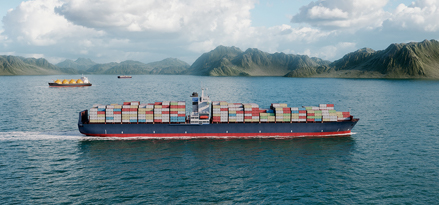ExxonMobil Voyager | Low Carbon Fuel Standard
- 3/9/2021

Assessment of Low Carbon Fuel Standard in response to IMO aspirations
In 2018, the International Maritime Organization (IMO) adopted its initial levels of ambition for a quantitative fall in marine industry greenhouse gas emissions (GHG); a reduction of at least 50% by 2050, compared with 2008 levels. It also envisions a 40% reduction in carbon intensity by 2030 and a 70% reduction by 2050, both compared with 2008 levels.
The big question is which measures are needed to achieve these targets?
Until now, the IMO gave priority to short-term measures including the implementation of further phases of the energy efficiency design index (EEDI) for new ships adopted in 2011. Three measures were approved at MEPC 75 in November 2020 affecting existing ships expected to come into force in 2023 (subject to adoption at MEPC 76 in June 2021). These were:
- The Energy Efficiency Design Index for Existing Ships (EEXI) – the application as a one-off reduction of the ship energy efficiency factor to all existing cargo and cruise ships above 400 GT regardless of year of build
- A mandatory carbon intensity indicator/rating scheme where all cargo and cruise ships above 5,000 GT will be given an annual rating of A (major) to E (inferior).
- Enhanced Ship Energy Efficiency Management Plan (SEEMP) to include mandatory content, such as an implementation plan on how to achieve carbon intensity indicator (CII) targets and corrective actions for certain low performing vessels.
In addition, new measures are expected to be adopted to further incentivise the use of alternative fuels that might account for 64% of the decarbonisation achievements by 20501.
In this context, a Marine Low Carbon Fuel Standard (LCFS) would provide, as a complementary measure, a predictable long-term pathway of annual percentage reductions in carbon intensity of the fuel pool to achieve the IMO’s aspiration of reducing GHG emissions from international shipping.
To be fully effective, an LCFS should be technology neutral and gradual to encourage innovation and give the stakeholders sufficient time to develop and test solutions before investing in new ships. Extending the current IMO Data Collection System (DCS) regulation to carbon intensity (reporting as obtained through bunker delivery notes) would enable effective and uniform implementation at a global scale.
1IMO 4th GHG study, July 2020
